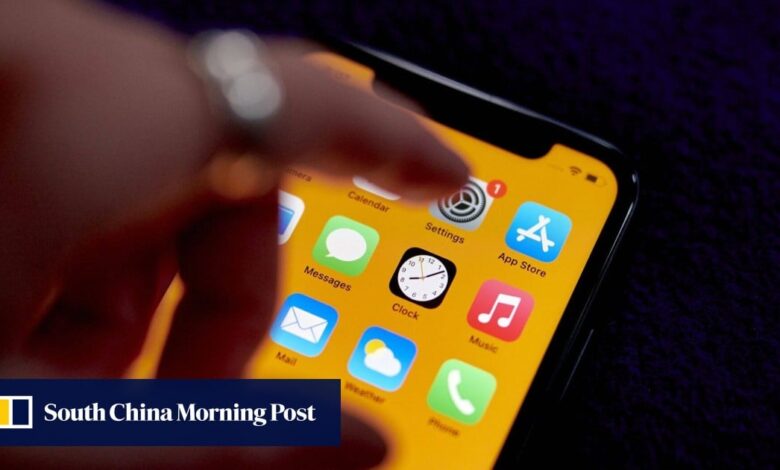China orders government workers to stop using iPhones amid heightened tensions with US

[ad_1]
A handful of Chinese ministries have told employees to stop using iPhones at work, citing national security risks amid heightened geopolitical tensions with the United States, according to several people familiar with the matter.
The orders were handed down some time in August to employees at ministries whose portfolios are focused on investment, trade and international affairs, according to five separate sources with knowledge of the situations.
The measures were understood to be aimed at eliminating perceived national security risks caused by telecommunication devices made by the US company, sources said.
A similar ban is believed to have been in place for years for some government bodies, but the latest order has expanded that ban.
Apple removes ChatGPT-like apps from China store as tighter laws beckon
Apple removes ChatGPT-like apps from China store as tighter laws beckon
Employees in those ministries have till the end of this month to switch to other phone brands while at work, a source said.
Since November 2022, many Western countries have moved to ban TikTok, owned by Chinese tech giant ByteDance, from federal government devices over concerns that Americans’ user data could be handed over to the Chinese government if Beijing forced the company to do so, though it has never presented any solid proof.
The move by Beijing, which has not been made public, comes amid mounting mistrust with Washington over disputes on trade, technology and espionage.
Xiaomi reasserts goal to challenge Apple’s iPhone at launch of new products
Xiaomi reasserts goal to challenge Apple’s iPhone at launch of new products
In July, China’s state security minister, Chen Yixin, called for stricter measures to “proactively defend” against spies to strengthen national security and the party’s leadership, citing risks from an unpredictable global environment.
It is not the first time Beijing has imposed restrictions on foreign technology over suspicion and national security concerns.
The ban on Tesla is still in place, sources said.
Beijing has also stepped up legal frameworks to strengthen national security, efforts which include fashioning laws to ensure that data collected in China stays within the country’s territory.
In July, China’s new anti-espionage law came into effect, which forbade any cyberattacks against the government to gain data and information “related to national security and interests” without permission.
Apple supplier Foxconn begins iPhone 15 production in India
Apple supplier Foxconn begins iPhone 15 production in India
Apple has hosted Chinese users’ data in a data centre located in the southwestern province of Guizhou since 2018.
In 2021, China’s Ministry of Industry and Information Technology issued draft regulations requiring that all smart vehicles store data collected in China within its borders. Tesla opened a data centre in Shanghai the same year.
[ad_2]
Source link






